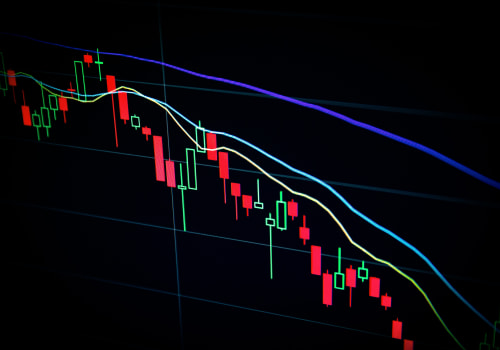If you are interested in trading binary options, you've probably heard of commodity-based binary options. But what exactly are they? What advantages and disadvantages do they offer? This article will give you an overview of commodity-based binary options, so you can better understand how they work and whether they might be a good fit for your trading needs. Commodity-based binary options are options that are based on the price of commodities like gold, silver, oil, and other goods. Trading these options allows you to benefit from the fluctuations in the price of these commodities, providing you with the potential to make a profit when the prices move in your favor. However, it also carries some risks, and you should understand them before you start trading.
In this article, we will discuss the basics of commodity-based binary options, including what they are, how they work, and the advantages and disadvantages that they offer. We'll also provide some tips on how to find a reputable broker for trading these types of options. By the end of this article, you should have a better understanding of commodity-based binary options and be able to decide if they are right for you. Commodity-based binary options are a type of financial instrument that allows traders to speculate on the price of various commodities such as oil, gold, silver, and more. This type of trading is based on the underlying asset's price movements, rather than predicting the direction in which its price will move.
Traders can open a binary options contract, select a strike price and expiration date, and then determine whether the asset's price will be above or below the strike price by the expiration date. If they predict correctly, they will receive a predetermined payout. The types of commodities that can be traded in commodity-based binary options vary from broker to broker. Some of the most common commodities traded include crude oil, gold, silver, coffee, corn, wheat, and sugar. In addition to these commodities, some brokers offer contracts on indices and stocks as well. Commodity-based binary options come in several different types.
The most common type is the High/Low option, which pays out if the asset’s price is above or below the strike price at the expiration date. Other types of binary options include Touch/No Touch options, which pay out if the asset’s price touches a predetermined level; Range options, which pay out if the asset’s price stays within a certain range; and Ladder options, which pay out depending on how far away from a certain level the asset’s price is at expiration. One of the major advantages of trading commodity-based binary options is that they are relatively low cost compared to other forms of trading. Since they are not traded on an exchange, there are no commission fees or other costs associated with trading. Additionally, they can be accessed from anywhere with an internet connection.
This makes them an attractive option for those who want to take advantage of market movements without having to invest large amounts of capital. Though there are many advantages to trading commodity-based binary options, there are also some potential risks. Binary options are considered high-risk investments due to their all-or-nothing payout structure. This means that traders can potentially lose their entire investment if their prediction is incorrect. Additionally, since these instruments do not trade on an exchange, there is no guarantee of liquidity or pricing accuracy. To illustrate how traders can use commodity-based binary options to speculate on the price of various commodities, let's look at an example.
Suppose a trader believes that the price of crude oil will go up in the next month. They could purchase a High/Low binary option contract with a strike price of $50 and an expiration date one month from now. If at the expiration date crude oil is trading above $50, the trader will receive a predetermined payout. If it is trading below $50, they will lose their investment.
Advantages of Trading Commodity-Based Binary Options
Commodity-based binary options offer traders an array of advantages compared to traditional investments.One of the primary benefits is the cost savings associated with trading commodity-based binary options. Since these options are traded through online brokers, the costs are generally much lower than those associated with traditional investments. This can be especially beneficial for those who are just starting out in the world of investing. In addition to cost savings, commodity-based binary options offer traders the ease of access that comes with trading online. With just a few clicks of the mouse, traders can access the tools and information they need to make informed decisions about their trades.
This makes it much easier to stay on top of market movements and make profitable trades. Finally, commodity-based binary options offer traders the potential for high profits. Because these options are relatively short-term investments, traders can make quick profits if they are able to correctly predict the direction of the underlying asset. This makes commodity-based binary options an attractive option for those looking to maximize their returns.
Risks Associated With Trading Commodity-Based Binary Options
Commodity-based binary options trading carries significant risks to traders, as large losses can be incurred if the market moves against the trader's position. It is important for traders to understand the risks associated with trading these instruments, and to ensure that they are aware of the potential for losses. The most common risk associated with commodity-based binary options is the potential for large losses.Since traders only have two possible outcomes when trading these instruments, they can incur losses of all of their invested capital if the market moves against them. This is especially true when trading on leverage, as traders can increase their potential losses exponentially. Additionally, there is no guarantee that a market will move in a certain direction. Even if the trader has done extensive research on a given asset and believes that it will move in a certain direction, they may still be wrong. This risk is inherent in any type of trading, but it is especially true when trading binary options. In addition to the potential for large losses, there is also the risk of fraud and manipulation.
As with any other type of financial instrument, traders should ensure that they are trading with a reputable broker who is regulated and has a good track record of providing fair and transparent services. It is also important to be aware of any possible scams or fraudulent activities that may be present in the market. Finally, traders should also be aware of the potential volatility of commodities markets. As with any other financial instrument, commodities can be subject to sudden and drastic price movements which can result in losses for traders who are not prepared. In conclusion, trading commodity-based binary options can be a good choice for certain traders due to the potential high returns, low cost of entry, and wide range of underlying assets. However, it is important to understand the risks associated with trading these types of options, including the potential for significant losses. Overall, commodity-based binary options provide an interesting way for traders to speculate on the prices of different commodities.
With the right approach and understanding of the risks, they can be an effective way to diversify one's trading portfolio.






